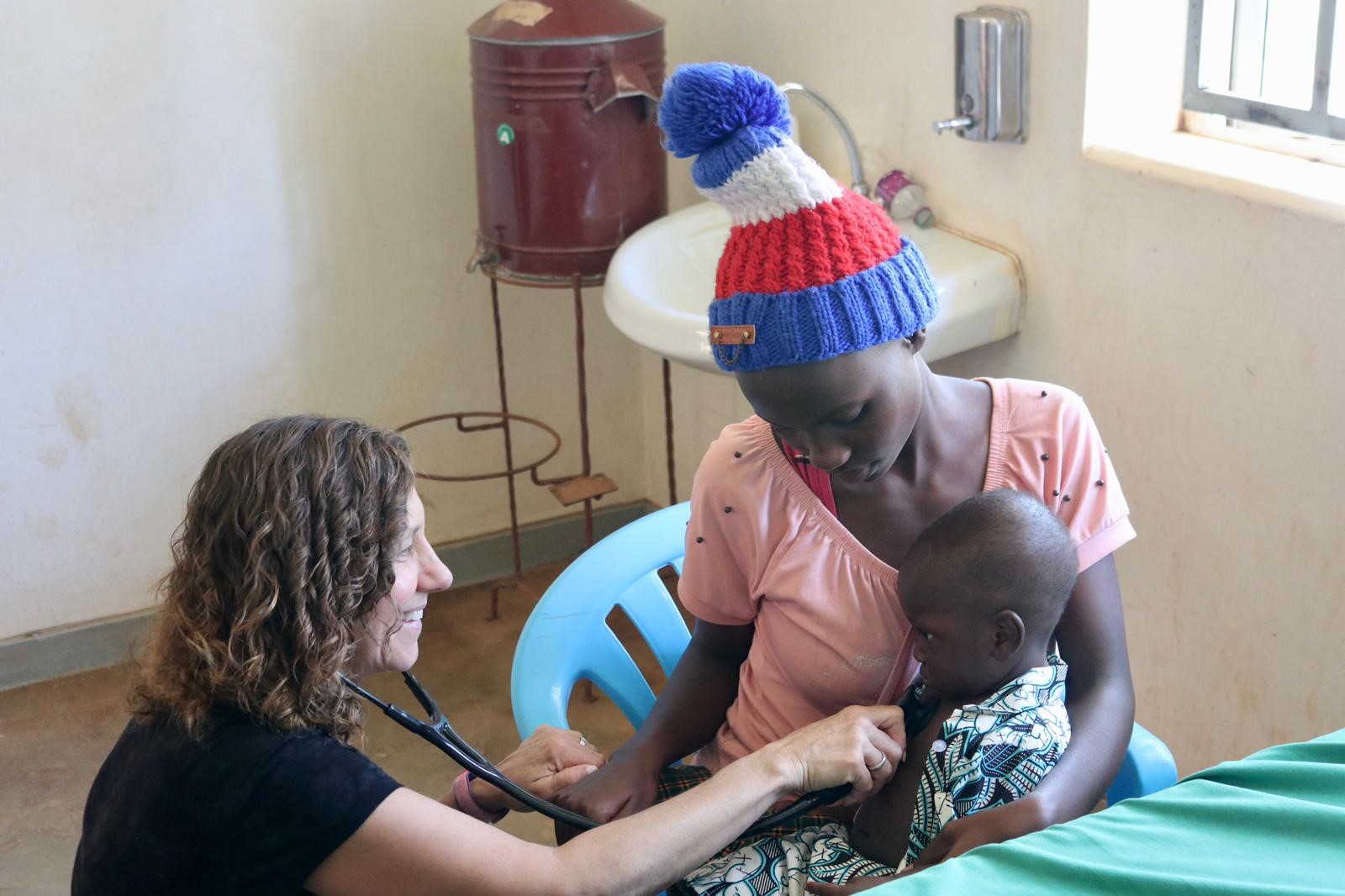
Across institutions and borders, doctors, veterinarians and experts from many disciplines are working together to envision a healthier world through the Global One Health initiative (GOHi). Their work is based on One Health principles, which the World Health Organization describes as an “integrated, unifying approach to balance and optimize the health of people, animals and the environment.”
Along with colleagues, GOHi executive committee member Traci Bouchard is helping further the One Health philosophy through her international work in Uganda and her teaching and facilitation at the GOHi Summer Institute. A working pediatrician at Nationwide Children’s Hospital with three decades of experience, Bouchard shared that she has “been doing global health tangentially for 20 years on short-term medical missions. I started incorporating that into a teaching format since 2010 where I would teach residents in resource-limited areas, which is often what global health practice means.”
In February, Bouchard visited Uganda to help train community health workers in collaboration with embedded nonprofit organizations including Zion Community Development Association, Lifeward, Jenga, Mbale Coalition Against Poverty, PONT and Born on the Edge. “I go to supplement the work that is already being done by Ugandans and providers. We also bring residents there to observe. They learn and observe more than they do. They get a taste of what it’s like to work in a different culture and we hope that it sparks an interest so they pick that for a career.”
Bouchard brings back this field experience and knowledge, using it to inform her teaching and research work with GOHi. “It’s a relatively new relationship, I just joined the committee in fall,” she explained. But she’s already been busy working with the GOHi team to submit a large grant proposal that would allow researchers to study immunizations in Africa. “That would be my dream,” she said.
In addition to the proposed research, Bouchard is helping to coordinate the annual Global One Health Summer Institute, a series of intensive workshops taking place from June through August that go deep into a range of human and animal health topics, equipping international public health and medical practitioners with supplementary knowledge that they can put into practice in their communities.
Last year, Bouchard moderated and lectured within the Internal Medicine and Pediatrics Residency Training Program as part of the Summer Institute. “I ran pediatric sessions—my hope is that I would bring more pediatric expertise to the projects that GOHi does. I’m always going to be that advocate for children,” she said, adding that she is helping to encourage a “specific focus on mother/child health and mortality.”
Attended by nearly 90 virtual participants from around the world, Bouchard and her fellow lecturers covered topics including Sickle Cell Disease, feeding of pre-term infants, antibiotic stewardship for neo-natal care, asthma, pneumonia, GI bleeds and managing patients presenting with congenital heart disease.
Bouchard said she approaches this training “without assuming that we know more. We try to always speak as though we are speaking to our residents here.” She explains that medicine in resource-limited areas can require a strategy that professionals call “reasoning without resources.” “If you are trying to work with a patient but don’t have access to an EKG, we try to use clinical reasoning. It's an approach to diagnostic capability and management if you don’t have every test available.” She explained that in many hospitals in developing countries, there may be some specialists but it would be rare to have 20 cardiologists. “As a general doctor, you’ll have to do more cardiology than a doctor in Columbus.”
That’s why GOHi training is so valuable as a supplement for working professionals. “We call it capacity building,” she explains. Through her work with the Summer Institute and on-the-ground in Uganda, Bouchard is helping to build people power within the medical profession. “Manpower is also a resource. When I go, I try to do a lot of teaching because that’s something I can leave behind and its more sustainable versus providing antibiotics or mosquito nets.”
In addition to the fulfillment Bouchard gets from educating other medical practitioners, she values the holistic approach that GOHi promotes. “Most people outside of America don’t have a Kroger and Meijer, they have to sustain themselves through farming, whether that be vegetables or animal livelihood,” said Bouchard.
Living side-by-side with animals and agriculture brings unique implications for human health, as do environmental exposures that differ in the developing world. For instance, higher rates of asthma in some areas are due to using improper cookstoves or fire pits with poor ventilation. Bouchard values the collaboration across disciplines that GOHi enables to alleviate issues like this. “I’m not that specialist but if I can work with someone who is, that’s going to make my treatment of respiratory disease so much more effective.”